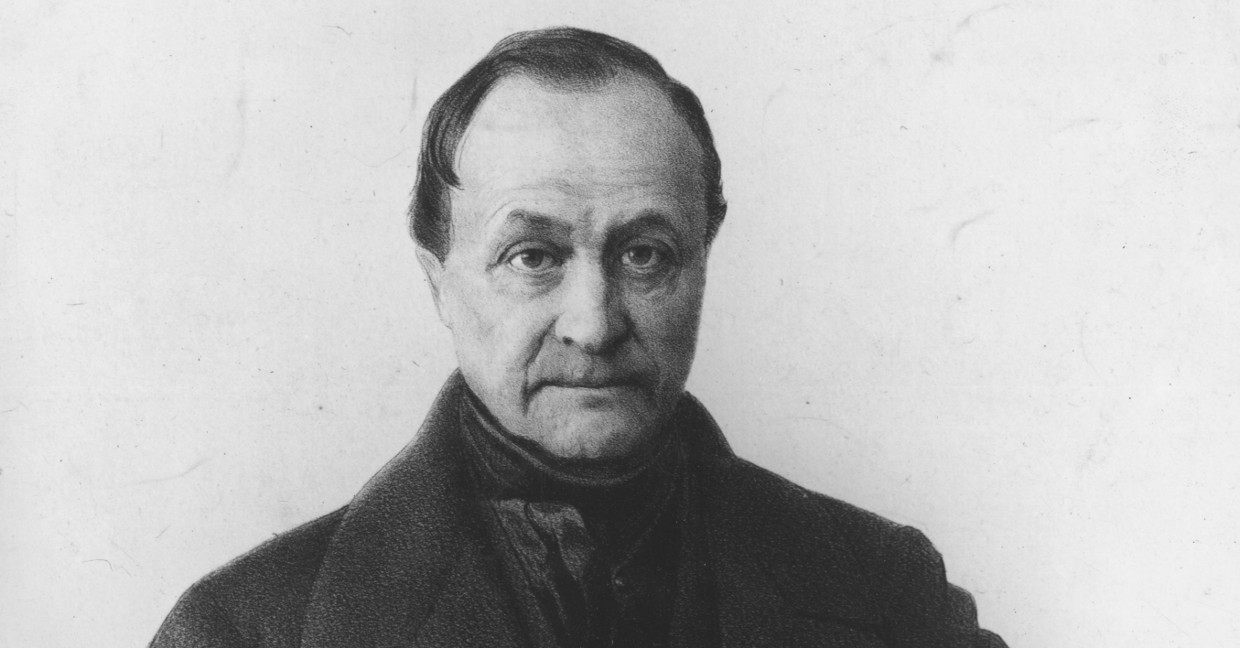It was Auguste Comte (1798-1857) who said, “Ideas govern the world.” By “ideas,” he meant beliefs and values; not so much the beliefs and values of individuals as the beliefs and values of a society. If a society is to hold together – if it is to cohere – its members must generally agree on a system of ideas. If there is considerable disagreement on beliefs and values, the society in question will tend to fall apart.
Though he didn’t believe in God or life after death, Comte was a great admirer of the Catholic Church. Its time, for him, had come and gone, but in the middle ages it had been just right; it was European society’s indispensable institution. For it provided the system of commonly held ideas needed to hold European society together: the system called Christian theology (or mythology as some by his day preferred).
Further, the Church had a marvelous structure, centered in the pope while at the same time decentralized in bishops and still further decentralized in parish priests. So greatly did Comte admire the Church of Rome that he would have been happy to see it govern the modern world – if only it would be so modern as to abandon its belief in God and accept instead the teachings of Comte.
The marvelous unity of the middle ages began to collapse with the coming of Protestantism and its disastrous principle (as Comte saw it) of private judgment. Protestants, having rejected the religious authority of the pope and his bishops, and having declared the Bible to be the one and only religious authority, had to exercise their own individual private judgment when reading the Bible.
At least that was the theory. But early Protestant political leaders (e.g., Queen Elizabeth I in England, the Puritans in Massachusetts), sensing the anarchic tendencies of the principle of private judgment, did not hesitate to persecute those who ventured to exercise their private judgment in the “wrong” way.
In the long run, however, the private judgment principle belonged too much to the very essence of Protestantism to be suppressed. It survived, it flourished, it expanded. Modern people learned – first in the Protestant countries but then everywhere – that they had a right to “think for themselves.” Freedom of thought became a fundamental principle of modernity; and not just freedom of thought when reading the Bible, but freedom of thought in all things: religion, morality, politics, art, literature, and anything else you can name.

Comte was no fan of freedom of thought; in fact, he was its great enemy. For he felt that it would lead to the breakdown of society, to intellectual and moral and political anarchy. We need, he held, a new authority to replace the old authority of the Catholic Church; a new modern authority that can teach everybody to think the same way about the really important questions, the “big” questions – just as the Catholic Church used to teach everybody to think the same way about the big questions.
Where can we find that authority? In science and the scientists, Comte answered. Mathematicians, astronomers, physicists, chemists, and biologists can tell ordinary people what to believe about the world of nature, and ordinary people will be persuaded by those teachings because they are truly scientific. But we will have to develop two new sciences, sociology (which will give us correct beliefs about history, politics, and society) and ethics (which will give us correct beliefs about right and wrong conduct). Comte himself kindly undertook to create these two final but very necessary sciences.
A new religion, the non-theistic Religion of Humanity, would be created, and the “priests” of this new religion would teach these seven sciences to the world, and the world would live in peace because everybody would agree on the most important beliefs and values, just as they did in the Catholic middle ages. Comte himself would be the high priest (in effect the pope) of this new religion, which would be headquartered not in Rome but in Paris.
Unfortunately for the unity of society, while the first five sciences (mathematics, astronomy, physics, chemistry, biology) were, and still are, universally accepted, the final two (sociology and ethics) never became truly scientific. In those two fields, private judgment continues to prevail today, more than 150 years after Comte made his noble but futile attempt to turn them into sciences. The Religion of Humanity never came about. Moral and intellectual anarchy continue to flourish.
When I consider a few of the crazier ideas that prevail widely today – for example, the idea that unborn babies are not babies, the idea that persons of the same sex can “marry” one another, and the idea (perhaps the craziest idea of all to date) that you can be of one sex, biologically given, and of an opposite gender, personally chosen – I remember Comte and his warnings about the dangers of private judgment.
Where will all this lead eventually? In two directions, I believe. First, since the anarchic dangers of free thought are so great, politically powerful forces will attempt to stifle free though not by persuasion (Comte’s way) but by compulsion and persecution (the way of Elizabethan England and Puritan Massachusetts). Second, since free thought is of the very essence of modernity, these attempts at compulsion and persecution will in the long run fail, and our moral and intellectual anarchy will grow worse and worse.
And where that will lead us, lacking some renaissance of religion or the moral sense, is difficult to say. But one thing is certain: it won’t be a pretty or very pleasant world.















